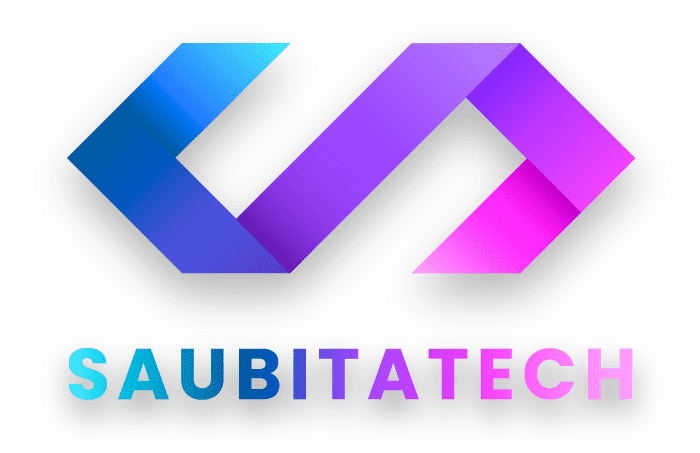In today’s rapidly evolving business environment, companies are constantly striving to improve their recruitment processes. With an ever-increasing demand for skilled talent, the need for a recruitment strategy that is efficient, cost-effective, and scalable has never been more crucial. One solution gaining traction in the recruitment industry is Recruitment Process Outsourcing (RPO). But how does RPO integrate with your internal HR team to create a seamless recruitment process? This blog will explore how integrating RPO with your internal HR functions can enhance recruitment efforts and drive organizational success.
What is Recruitment Process Outsourcing (RPO)?
Before diving into the integration of RPO with your internal HR team, it’s important to understand what RPO is. Recruitment Process Outsourcing (RPO) refers to the outsourcing of all or part of the recruitment process to a third-party service provider. These providers handle various recruitment functions, such as sourcing candidates, screening resumes, conducting interviews, and managing the entire hiring process. This allows businesses to focus on core functions while benefiting from external expertise and resources.
RPO can be customized based on the company’s unique needs and can cover a wide range of recruitment tasks, from end-to-end recruitment to just specific phases of the process.
Why RPO is a Game-Changer for Recruitment
RPO offers several key benefits that make it an attractive solution for companies seeking to improve their recruitment processes. These benefits include:
- Scalability and Flexibility: As your business grows, so do your recruitment needs. RPO allows businesses to scale their recruitment efforts quickly without the burden of additional internal resources.
- Cost Savings: By outsourcing recruitment to an RPO provider, companies can reduce recruitment-related costs. RPO providers often bring a wealth of experience and technology that allows them to hire more efficiently, reducing time-to-hire and cost-per-hire.
- Access to Expertise and Technology: RPO providers bring specialized recruitment knowledge and cutting-edge technology to the table. This can improve sourcing, screening, and hiring processes, leading to better-quality hires.
- Improved Candidate Experience: With dedicated resources handling the recruitment process, candidates are more likely to have a positive experience, which enhances your employer brand.
- Focus on Core Functions: By outsourcing the recruitment process, internal HR teams can focus on other strategic areas like employee engagement, development, and retention.
How to Integrate RPO with Your Internal HR Team
The true value of RPO comes from integrating it seamlessly with your internal HR team. This collaborative approach ensures that the benefits of outsourcing are realized while maintaining alignment with your company’s culture, goals, and strategies.
Here’s how to integrate RPO effectively:
1. Define Roles and Responsibilities
One of the first steps in integrating RPO with your internal HR team is clearly defining the roles and responsibilities of both parties. While the RPO provider will handle specific recruitment tasks, your internal HR team should remain actively involved in areas like talent strategy, onboarding, and employee engagement.
A Step-by-Step Guide to Partnering with an RPO Provider

For instance, your internal HR team may continue managing relationships with hiring managers and overseeing internal policies, while the RPO provider manages candidate sourcing, screening, and initial interviews. Clear communication between both parties ensures a smooth handoff of candidates and fosters collaboration.
2. Align Recruitment Strategies and Objectives
It’s crucial that your internal HR team and the RPO provider are aligned on your recruitment objectives and strategies. Both teams should have a shared understanding of your company’s hiring goals, values, and culture. Regular meetings and strategy sessions should be conducted to ensure both parties are on the same page.
By aligning recruitment strategies, your HR team and RPO provider can work together to create a recruitment process that reflects your company’s values and attracts the best-fit candidates. This ensures that new hires not only possess the necessary skills but also fit seamlessly into your company culture.
3. Streamline Communication and Collaboration
Effective communication is the foundation of any successful partnership. Establishing clear lines of communication between your internal HR team and the RPO provider is essential to ensure smooth collaboration. This includes regular check-ins, status updates, and feedback sessions.
Using tools like project management software or shared communication platforms can help facilitate real-time collaboration. Regular updates on recruitment progress, challenges, and successes will keep everyone informed and aligned. This continuous flow of information enables both teams to adapt to changes quickly and efficiently.
4. Leverage Technology and Automation
Integrating RPO with your internal HR team also involves leveraging technology to streamline processes. RPO providers typically use advanced tools and platforms to enhance recruitment functions, such as applicant tracking systems (ATS), candidate sourcing platforms, and AI-driven screening tools.
By using the same technologies across both internal HR and RPO teams, you ensure data consistency and improve the overall efficiency of the recruitment process. Automation tools can also help reduce manual tasks, allowing your HR team to focus on more strategic areas of talent management, such as talent development and retention.
Scalable Hiring Solutions: How RPO Helps During Seasonal and High-Growth Periods
5. Maintain Control Over Company Culture
While the RPO provider will manage much of the recruitment process, it’s important for your internal HR team to maintain oversight over the cultural fit of candidates. Your HR team has a deeper understanding of your company’s values, mission, and culture, and this insight is vital in selecting candidates who align with your organizational ethos.
Your HR team should be actively involved in final-stage interviews and in making decisions about candidate fit. While the RPO provider can handle the heavy lifting in terms of candidate sourcing and initial screening, the final decision on cultural alignment should always lie with your internal HR team.
6. Regular Reporting and Performance Metrics
To evaluate the success of the RPO integration, establish clear performance metrics and reporting systems. Key performance indicators (KPIs) such as time-to-hire, cost-per-hire, candidate quality, and retention rates should be tracked and reviewed regularly.
The RPO provider should provide detailed reports on their recruitment activities, including metrics on sourcing, screening, and candidate progress. Your internal HR team can use these reports to measure the success of the recruitment strategy and make adjustments as needed.
7. Continuous Feedback and Improvement
Integration is an ongoing process, and continuous feedback is key to improving the partnership between your internal HR team and the RPO provider. Regular feedback sessions help identify areas for improvement and ensure that the recruitment process remains agile and responsive to changing business needs.
Both teams should be open to constructive feedback and collaborate on refining processes to drive better results. This could include enhancing candidate sourcing strategies, improving the interview process, or adjusting recruitment workflows.
The Benefits of Integrating RPO with Your Internal HR Team
When integrated successfully, RPO can bring several advantages to your recruitment process:
- Faster Hiring: With dedicated recruitment professionals handling the process, companies can reduce time-to-hire, ensuring that they can fill roles faster and avoid losing top talent.
- Higher Quality of Hires: The expertise and technology provided by the RPO team can improve the quality of candidates by refining sourcing and screening processes.
- Reduced Recruitment Costs: Outsourcing recruitment to an RPO provider can lower overall recruitment costs by eliminating the need for additional in-house recruitment staff and reducing inefficiencies.
- Better Talent Pool: RPO providers have extensive networks and resources that enable them to source top talent from a wider pool of candidates.
Conclusion
Integrating RPO with your internal HR team is a strategic move that can streamline your recruitment process, improve the quality of hires, and help your organization scale effectively. By leveraging external expertise and advanced technology, while maintaining internal oversight of company culture, you create a recruitment process that is both efficient and aligned with your company’s values.
If you’re ready to enhance your recruitment process and explore the benefits of RPO integration, check out Saubita Tech’s Custom Web Development for technology solutions that can help you optimize your HR functions. Interested in joining a dynamic, innovative team? Visit Saubita Tech Careers for more information on open positions. For any inquiries, don’t hesitate to reach out via Contact Us.
Additionally, stay updated on the latest HR and tech trends by reading more insightful blogs on Saubita Tech’s Blog.
By adopting a collaborative approach to recruitment, your organization can reap the benefits of a seamless, highly efficient hiring process that supports growth, enhances talent acquisition, and improves overall business performance.







